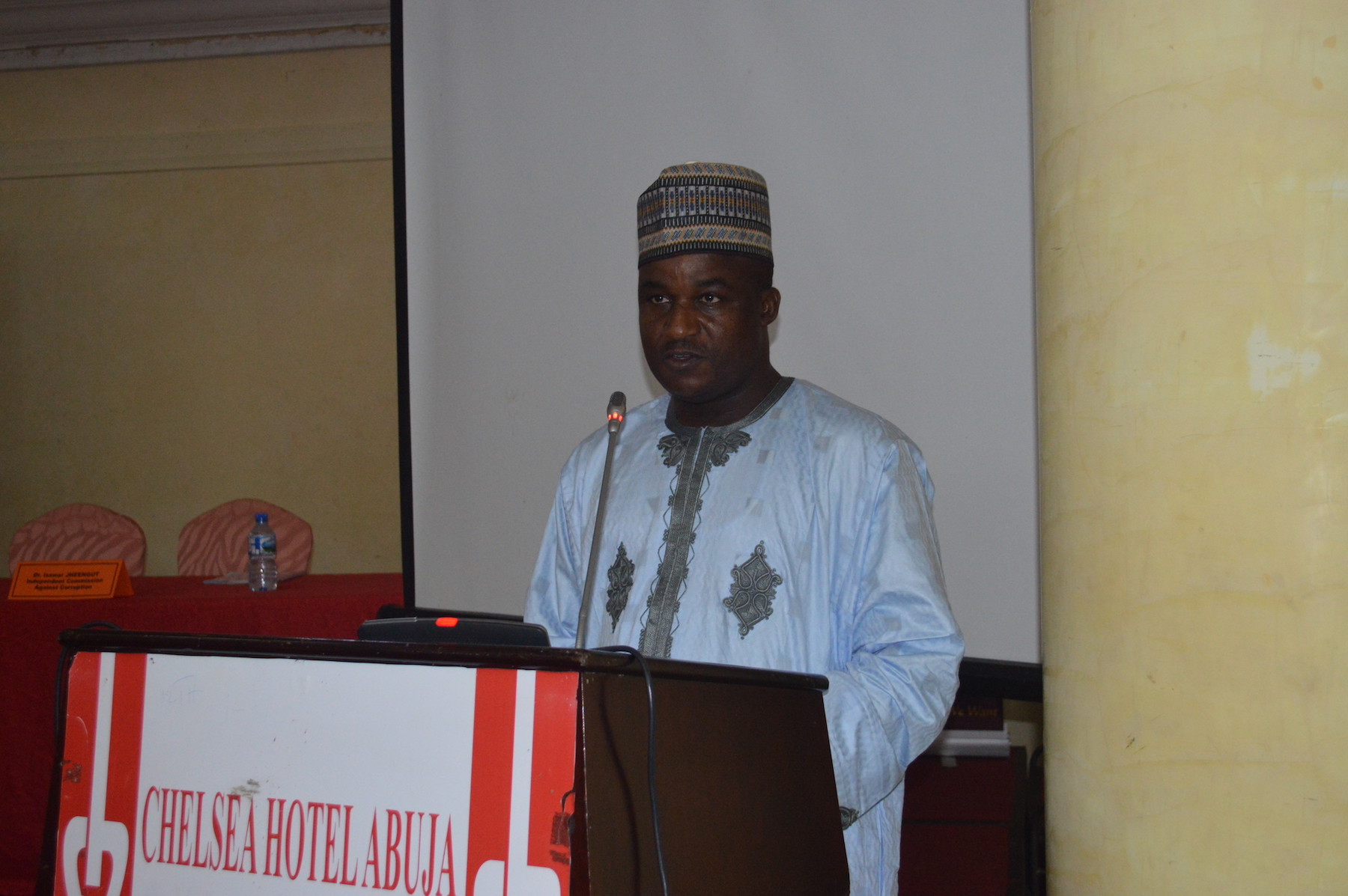The Chairman, Independent Corrupt Practices and Other Related Offences Commission (ICPC), Dr. Usman Abubakar, has described corruption as the most pressing governance and development challenge confronting the Africa region.
Presenting a paper titled: ‘’Improved Regional and National Space and Platform for Anti-Corruption Agenda in Africa’’ at the opening ceremony of African Union Economic, Social and Cultural Council (AU- ECOSOCC) recently in Abuja, Dr. Abubakar lamented the endemic corruption in Africa despite the various legal instruments adopted and signed by the international communities and African countries.
In his words: ‘…’it is even believed by some that social acceptance and tolerance of corruption remains very high in Africa.’’
Relying on the outcome of corruption studies, the acting Chairman revealed that a ‘’significant number of anti-corruption agencies in Africa are weak, poorly funded and not independent; and they also receive little political backing for their activities.’’
Nigeria, he said, is doing quite well in the anti-corruption war as it had created spaces and platforms for fighting corruption, ‘’…even though we slumped so low on the corruption perceptions Index of the Transparency International, an assessment we find questionable.’’
Abubakar alluded to the implementation of transparency and accountability mechanisms such as the E- Government platforms like Treasury Single Account (TSA), Integrated Payroll and Personnel Information System (IPPIS), and Government Integrated Financial Management Information System (GIFMIS) as what had helped significantly in reducing opportunity for corruption in Nigeria.
The ICPC boss mentioned other anti-corruption measures to include the Reformed Administration of Criminal Justices Processes, robust engagement with Civil Society Organisations (CSOs) and Citizenry in Social Reorientation and Enlightenment.
He advised African countries to embrace technology as it reduces opportunities for corruption as evident in the e- government platforms deployed by the Nigerian government, adding that ‘’strong institutions are a necessary element for entrenching transparency, accountability and openness which will in turn bring about good governance.’’
He urged anti-corruption CSOs to live above board, and ‘’…shun corruption for them to freely fight the monster otherwise they will remain with integrity question hanging over them.’’
While welcoming participants to the meeting, the Chairperson, Social Affairs and Health Cluster, ECOSOCC, Dr Tunji Asaolu, said stakeholders had a role to play in mobilising actions against corruption. He said the purpose of the meeting was to galvanise ideas and strategies on how CSOs in the Africa region could mobilise themselves to fight corruption on the continent.
The meeting, which was attended by representatives of CSOs in the Africa region was held in Abuja and lasted for two days.

